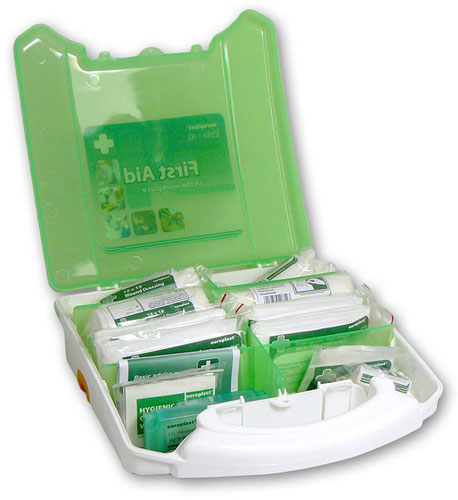What to pack in your travel medical kit
 Part of the fun of visiting a foreign destination is getting to try all kind of new things and going on new adventures, but being active and curious can often mean you’ll bring a few bumps and scrapes home with you.
Part of the fun of visiting a foreign destination is getting to try all kind of new things and going on new adventures, but being active and curious can often mean you’ll bring a few bumps and scrapes home with you.
You don't want to have to run off to a new doctor's office every time you get a little cut or take a minor tumble while travelling, so being proactive and packing a small medical kit is a great way to save yourself and save your holiday from the little missteps that may come.
Think personal
When you pack your first aid kit, be sure to include items and information that you will need to maintain your own health. This includes any medications that have been prescribed to you. If you have enough time, bring refills with you to avoid the hassle of doing so abroad. Include copies of your prescriptions, along with their generic medicinal names. This way, in the off-chance that you do need to make refills abroad, you have the information right at hand.
Also be sure to pack any over-the-counter medications that may be helpful to you during your travels. With your destination in mind, you can expect the unexpected by already having the proper antihistamines, antidiarrheals, and antibacterial creams you’ll need, saving yourself a trip to the pharmacy.
Another thing to think about when getting your travel medical kit together is allergies. If you have any allergies to medicine or foods, write them down, and keep that information with you at all times. If your doctor has given you an EpiPen, bring it with you. And, if you can find someone to translate the allergy information into the local language of your destination, that is even better. You don’t want to cut your holiday short because of an allergic reaction that could have been prevented.
Get specific
Take a second to think about what activities you'll be participating in during your travels. If you're going to be hiking and bungee jumping, then adhesive bandages and disinfectant wipes may be a good addition to your kit. If you plan to spend most of the time on the beach, be sure pack extra sunblock and aloe vera to soothe any burns.
There may be some medications that are particularly useful depending on where you're headed. For example, if you're visiting a destination that has had issues with malaria in the past, you may want to ask your doctor for some tablets to help ward off the disease.
Vaccinations are important to have before you leave, but consult your physician about additional tactics to keep healthy during the trip. If you are going to an area where malaria problems have occurred, you may want to ask your doctor for a supply of malaria tablets to help keep yourself and your travel companions safe.
Not just meds
Your first aid kit is also a good spot to keep track of any documents you may need if you do have to visit a hospital. Be sure to pack copies of your passport, as well as any information pertaining to your travel medical insurance so you'll know exactly where it is in the case of an emergency.
You can also find loads of other information about health and travel planning from the New Zealand government’s SafeTravel website.